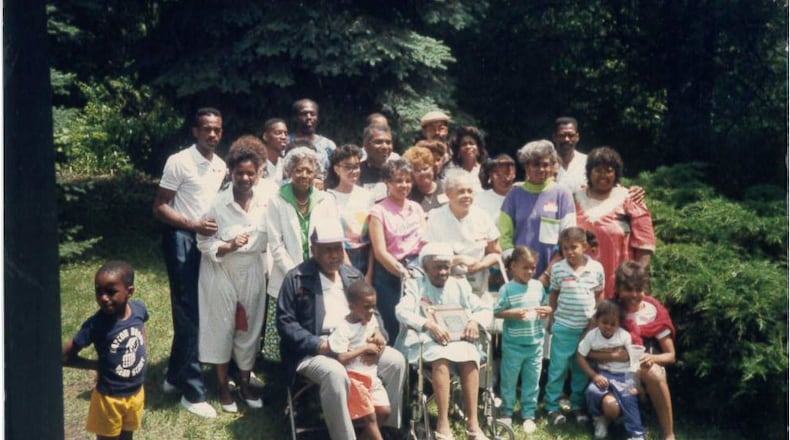The Randolph Freedpeople were former slaves held by the Virginian U.S. Sen. John Randolph who, upon his death in 1833, freed his nearly 400 slaves and gave them an inheritance to settle in western Ohio.
Before the group managed to get from Virginia to Ohio, the citizens of Mercer County banded together to “take into consideration the best and most suitable measures for the removal of the entire colored population from the county, and to prevent others from settling among us,” as stated in an 1846 edition of the newspaper the Defiance Democrat.
That convention led to the passage of an ordinance that flatly stated: “We will not live among negroes, and as we have settled here first, we have fully determined that we will resist the settlement of blacks and mulattoes in this county, to the full extent of our means, the bayonet not excepted.”
In a letter to Gov. Mike DeWine, Jarrells recounted that the group was met at the Mercer border by angry mobs of white residents.
“Left with the choice of staying and risking their lives, the Randolph Freedpeople turned their boats around and headed south along the canal,” Jarrells said.
Much of the group went on to settle in and around Piqua in Miami County.
Paisha Thomas, a descendant of the Randolph Freedpeople who joined Jarrells in a press conference, said her family and the rest of the group’s descendants have “lived with an injustice for 178 years.”
“This is not only a suppressed history, it is an absolutely unacceptable injustice which should be repaired,” Thomas said.
Jarrells said the first step toward repairing that justice is awareness and “making sure that our state recognizes that this happened, and we should do something.” The second step, Jarrells continued, “is figuring out what that something would look like.”
Though Jarrell’s immediate plans don’t move beyond commemorating the Randolph Freedpeople’s struggle, he noted that he’d like to see the state start something like a scholarship fund for the descendants, establish a museum, or begin the process of potentially returning some of that land — much of it now owned by the state — to the descendants.
“We can look at the state owned land that’s currently within the 3,200 acres and see what’s the possibility, what can we do?” Jarrells said. “We as the state own this land, so we can do something.”
Larry Hamilton, a Piqua High School history teacher and advocate, told reporters that he has long promoted “the idea of valuing and honoring the struggle for freedom,” and said the Randolph Freedpeople descendants rightfully deserve what was denied to their ancestors.
“That’s a small way we can have some level of reparative justice,” Hamilton said.
Jarrell’s resolution to commemorate the Randolph Freedpeople’s story has not yet been formally introduced, but he’s optimistic that it can find bipartisan support before the 135 General Assembly concludes at the end of this year.
When this news organization asked Jarrells about the message the legislature would be sending if it didn’t pass his resolution, he responded, “In my belief, it will be a travesty and a stain upon its history.”
For more stories like this, sign up for our Ohio Politics newsletter. It’s free, curated, and delivered straight to your inbox every Thursday evening.
Avery Kreemer can be reached at 614-981-1422, on X, via email, or you can drop him a comment/tip with the survey below.
About the Author

